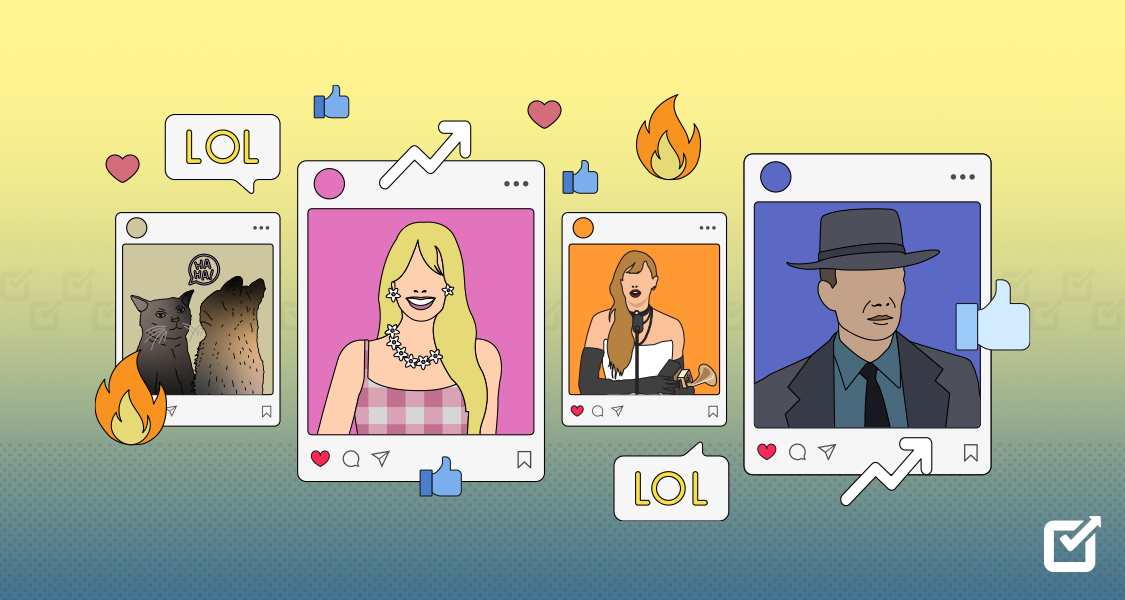
How Meme Culture Took Over Real News in 2025
Josh Shear – In 2025, the lines between news and memes have officially blurred and most people didn’t even notice. What once started as internet inside jokes on forums like Reddit and Tumblr has now become a global language, a weapon of influence, and perhaps scariest of all the primary source of news for millions. The headline How Meme Culture Took Over Real News in 2025 isn’t just catchy, it’s a disturbing reflection of what media has become.
What’s really going on beneath the surface of your favorite Instagram stories or “funny” tweets? Why are political campaigns investing more in meme pages than official ads? And is this the end of objective journalism as we knew it?
Let’s unpack the rise of meme culture and how it hijacked our understanding of reality in less than a decade.
It started innocently. Memes were once just a fun way to pass time, share relatable jokes, or mock pop culture moments. But by the time platforms like TikTok, X (formerly Twitter), and Instagram Reels took over, memes evolved into bite-sized narratives. They became persuasive tools simple, shareable, emotional.
By 2022, research showed that young audiences were more likely to get their political opinions from TikTok trends than cable news. Fast-forward to 2025, and memes are being crafted not just by influencers, but by political think tanks, marketing firms, and AI engines programmed to track public sentiment and seed content with surgical precision.
What makes memes so powerful? They’re fast. They bypass critical thinking. They offer comfort through humor while slipping in a bias. And most of all, they are frictionless no need to read, verify, or question.
Read More: How Blockchain Is Reinventing Digital Security Like Never Before!
News organizations used to control the narrative. Editors curated headlines, vetted facts, and published after layers of review. But the viral nature of memes has flattened that hierarchy. In the time it takes for a newsroom to confirm a fact, a meme about it has already gone viral, shaped public perception, and rewritten the story.
In 2025, this means traditional news outlets are playing catch-up. Worse, many are mimicking meme formats to survive making journalism indistinguishable from satire. You’ll now find carousel posts on Instagram that look like memes but are actually trying to explain war, inflation, or elections in five seconds.
The result? An audience that’s emotionally engaged but intellectually confused.
Memes have become political gold. In fact, during the 2024 U.S. presidential election, both parties invested heavily in meme campaigns. Not just for their own promotion, but for smearing opponents, floating conspiracy theories, and controlling online conversations.
Today, 2025 politics are shaped more by what’s trending on social media than by televised debates or official policy releases. A poorly photoshopped meme featuring a candidate’s face can now destroy weeks of campaigning even if the claim is totally fake.
Meme warfare isn’t just domestic. Foreign governments and digital militias are using memes to influence opinion, undermine trust in democratic institutions, and spark division all without firing a shot.
Artificial Intelligence has taken meme culture to the next level. Smart algorithms can now generate highly targeted memes based on your browsing history, political leanings, and emotional triggers.
Some meme accounts on social platforms are now fully automated. Their content feels human, funny, even authentic but it’s built to push narratives, plant subtle messages, or test how far misinformation can spread.
The scary part? They’re getting better at it every day. In 2025, not only can AI generate fake news articles, but it can now wrap them in humor, hashtags, and viral-worthy formats that outperform any headline.
So here’s the uncomfortable truth about how meme culture took over real news in 2025: we let it happen. It’s tempting to say memes are “just jokes.” But jokes carry weight when millions take them seriously or use them to justify beliefs. The danger isn’t the meme itself, but the ecosystem we’ve built where memes are treated as truth and truth becomes a matter of opinion.
The future of media isn’t in decline it’s mutating. And unless we demand transparency, digital literacy, and media reform, we risk raising a generation who thinks governance is just content, and facts are optional.
The solution isn’t to ban memes or retreat into cynicism. It’s to become smarter consumers of information. It’s to ask: who made this, why, and what are they trying to say underneath the humor?
Memes can be powerful tools for resistance, education, and connection. But they can also be used to manipulate, divide, and distract. In 2025, our job isn’t to fear meme culture it’s to understand how it works and choose what kind of stories we want to believe.
Because in a world where a meme can become the news, you are the editor.
This website uses cookies.